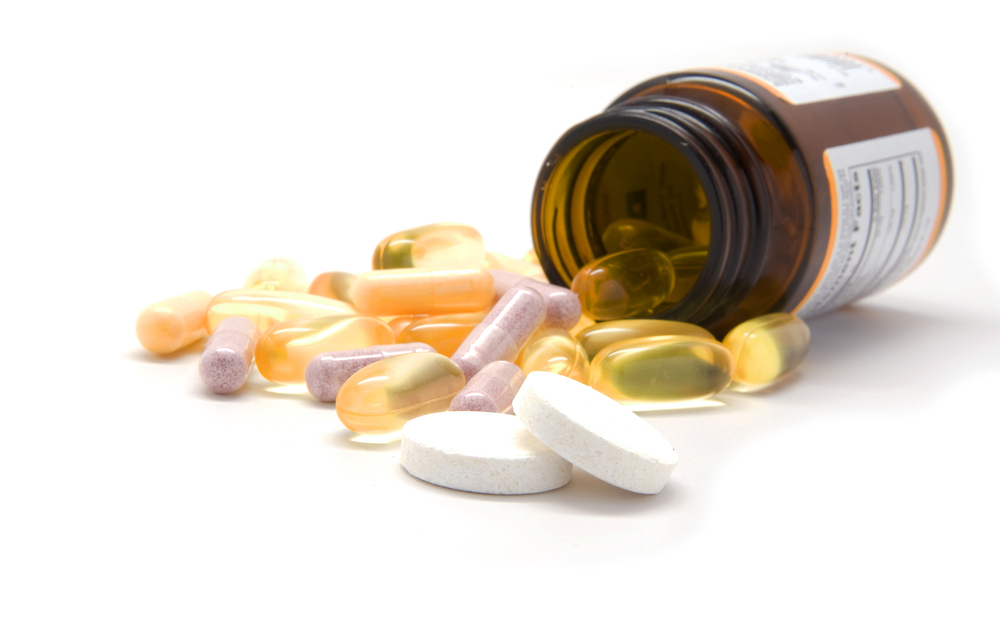Vitamins, supplements can benefit your body
The seesaw of vitamin and supplement recommendations continues to confound the orthopedic world.
If I were to give a balanced summary of current thinking, I would have to write it from at least 50 perspectives. So here is my biased interpretation on a couple of them.

We grew up in orthopedics telling all women to take calcium and vitamin D supplements, plus a one a day vitamin and extra folic acid during pregnancy years. This advice was based on the fact that all people lose bone mass after their late 20s and 30s and women lose it faster than men. The loss of bone mass leads to fractures, spinal collapse, loosening of implants and significant disability with aging.
Calcium and vitamin D can boost our bones, but getting enough without taking supplements is not always easy. Vitamin D is present in relatively few foods (we get it mostly through sun exposure) and some foods we eat may well drain our calcium supplies, such as carbonated sodas with colors in them.
While milk, cheese and spinach are calcium-rich and, if plentiful in the diet, mostly negate the need for supplementation, in my opinion the arguments against taking calcium and vitamin D supplements are fairly weak. They mostly focus on some increased association of certain cancers with calcium, and confusion as to what normal vitamin D levels are. However, the overwhelming evidence of bone loss, the variability of diet and lack of sunlight, which is required to convert the inactive form of vitamin D to the active form, all speak to sticking with the recommendation of calcium and vitamin D supplementation. New data focusing on vitamin D-deficient surgical patients shows a direct correlation between low vitamin D and postoperative complications. From an orthopedic perspective, insufficient vitamin D levels can cause impaired bone healing and recovery, organ dysfunction, and an increased infection rate post-surgery.
For men, the calcium recommendation is less clear, as high calcium levels have been associated with prostate cancer. However, for most of a male’s life, increasing sunlight exposure (at least 30 minutes of full-body exposure per day) and calcium-rich foods provide sufficient nutrients. Vitamin D may still be low however and levels may be worth checking at your next doctor visit.
Antioxidants, found in vitamin C and E and beta-carotene, present another dilemma. Antioxidants are scavengers, which collect the free radicals thought to cause the breakdown of tissues. Some argue in favor of taking supplements, saying aging is delayed, skin will look younger etc. Others point out a flaw in this argument, since the body uses these free radicals to kill the millions of abnormal precancer cells that pop up every day. There is evidence to suggest that increased doses of antioxidants may actually speed up cancer progression.
Other than calcium and vitamin D, no other vitamin supplement has been shown to be beneficial to healthy people. That said, however, bones and joints are in a constant process of turning over, and since we are aging, they are never homeostatic or balanced. They are slowly degrading. Providing stimulation for bone formation or joint lubrication seems to make sense. In addition to vitamin D and calcium, there is data to suggest that glucosamine stimulates production of joint lubrication, inhibits joint degradation, and stimulates cartilage repair. (Disclosure, I developed a nutritional supplement, Joint Juice, which contains glucosamine and chondroitin, although I do not profit from sales.) Some people are skeptical that the effect is enough to make a difference.
When we repair, regenerate and replace the articular cartilage, meniscus cartilage and ligaments in people’s knees these days, we now augment the repairs with injections of growth factors and native repair cells. These factors are anabolic stimulants boosting the repair process. It would be ideal if we could achieve the same effect with a pill.
Most likely we should look at our hair, our skin, our brains and other organs as all are in need of repair stimulation. Defining which supplements will rejuvenate each of these is our next challenge. Stay tuned for brain juice, skin juice and bone juice in addition to joint juice.
